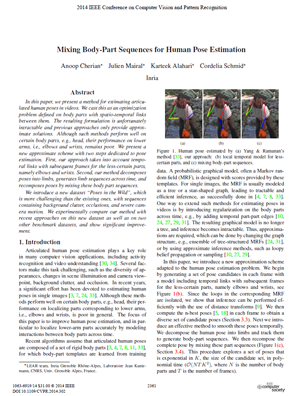Seminar on Current Works in Computer Vision
Prof. Thomas BroxComputer Vision is a very active research field with many practical applications, for instance in quality control, robotics, or driving assistance systems. The ultimate goal of Computer Vision is to imitate the capabilies of the human visual system, allowing the computer not only to record images but also to interpret them. Research has made significant progress in recent years and particularly deep learning has helped improve on many tasks and approach new ones.
In this seminar we will take a detailed look at some of the most interesting recent works. For each paper there will be one person, who performs a more detailed investigation of a research paper and its background and who will give a presentation. The presentation is followed by a discussion with all participants about the merits and limitations of the respective paper. You will learn to read and understand contemporary research papers, to give a good oral presentation, to ask questions, and to openly discuss a research problem.
|

|
Slides of first session with instructions for a good presentation
Powerpoint template (optional)
Papers:
| Date | Paper | Questions | Presenting student | Slides | Advisor |
| 13.12.2018 | Deep network architectures | Questions | Lukas Boschert | Slides | Tonmoy Saikia |
| 10.01.2019 | Bilevel learning | Questions | Anushe Glushik | Slides | Yassine Marrakchi |
| 17.01.2019 | Learned 6D pose estimation | Questions | Hanna Siemund | Slides | Nikolaus Mayer |
| 24.01.2019 | Facial animation from a single image | Questions | Simon Ging | Slides | Mohammedreza Zolfaghari |
| 31.01.2019 | Semi-supervised learning | Questions | Mariana Ferrandon | Slides | Sudhanshu Mittal |
| 07.02.2019 | Visual meta-learning for planning and control | Questions | Samuel Roth | Slides | Artemij Amiranashvili |


